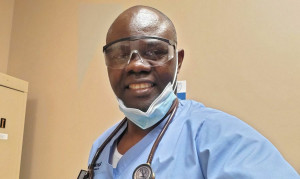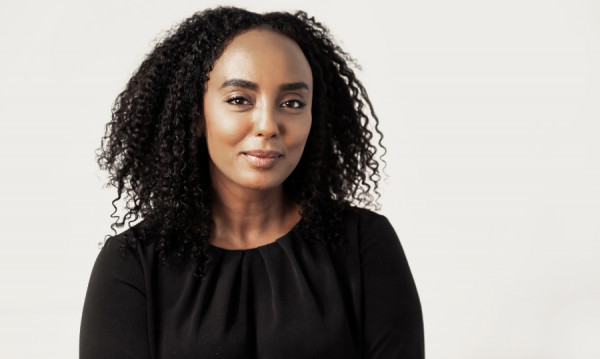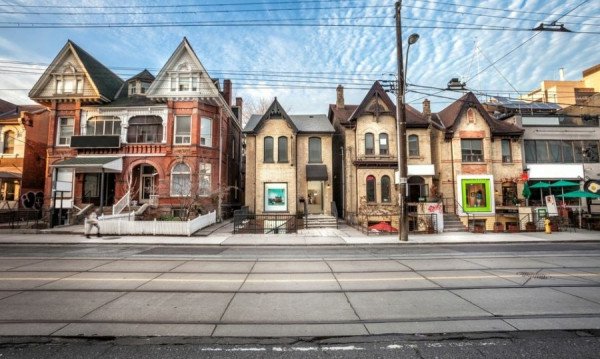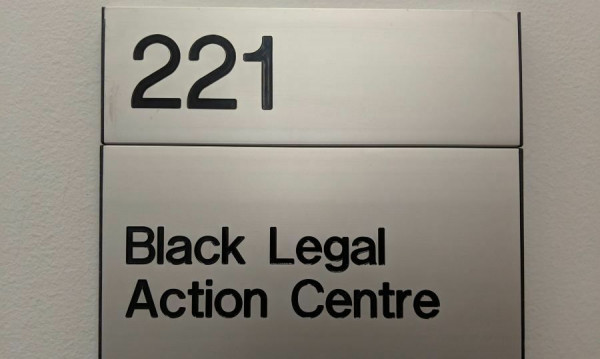The Black Legal Action Centre (BLAC) is a non-profit community legal clinic established in 2017. BLAC was formed to fight back against anti-Black racism, push for more policy reform, and improve experiences for Black families living in Ontario. It provides free legal services to low or no-income Black community members from Ontario.
In September 2020, BLAC announced the departure of its Executive Director, Ruth Goba, followed by the resignation of two board members in December 2020. According to Lesa Francis, the current Interim Executive Director, the organization has grown exponentially in the last year. “We are quite busy. We work collaboratively with several community organizations, the province, and other clinics, to combat anti-Black racism and provide exceptional legal services to low-income Black Ontarians," says Francis. "We recognize that anti-Black racism is a critical issue in our province and across Canada, so we also spend a lot of time on our advocacy and social justice efforts.”
Since the outbreak of the coronavirus, BLAC has been engaged in compiling and frequently updating a resource list for COVID-19 relief support, as well as culturally appropriate resources that would be useful for the Black community. This resource list is available on the organization’s website and contains information and updates on the latest case data, new emergency rules in the province of Ontario, and updates on the law and legal services related to the pandemic among other things.
The non-profit recently launched its School-to-Prison Pipeline, an 18-month research and advocacy initiative funded by the Anti-Racism Action Program fund at the Department of Canadian Heritage. Starting in January 2021, the School-to-Prison Pipeline project is concerned with advocating for meaningful change and policy reforms related to members of the Black community in Ontario by gathering the experiences and stories of Black families affected. A broad range of project activities will be aimed at fostering connectivity with the Black community in eight key regions in Ontario: The City of Toronto, Durham Region, Peel Region, York Region, The City of Hamilton, The City of Windsor, The City of Ottawa, and The City of London, ON. These regions were selected based on their relatively high populations of Black communities.
Beyond covering the eight regions, the project also aims to include areas with smaller pockets of Black communities facing additional barriers in seeking out culturally responsive services, as well as community gathering opportunities to partake in. According to Jody Yaa Dunn, the current Provincial Anti-Black Racism & Justice Programs Manager, who leads the School-to-Prison Pipeline project at BLAC, “We're more than happy to connect with other rural communities as well. Our researchers are actively looking for hidden communities of Black people across Ontario.”
Partnership and Engagement Efforts with the Community
Currently, the project is looking for suitable partners to work on culturally responsive services aimed at the Black community. According to Dunn, “Our community engagement coordinator is searching for Black-led or Black serving agencies that are doing impactful work. Our current priority is to connect with agencies that are well-respected in their community and directly connected to Black families, and youth workers that are supporting Black families in terms of education adjustment.” However, Dunn adds, “Any organization within the eight regions are more than welcome to get in touch with us because we would love to hear from people that are interested in being involved.”
The Project will use a variety of methods to connect with various stakeholders in the Black community, including parents, youth, and teachers from each region. The methods deployed to connect with each community may vary depending on the dynamics of each region. Attempts will be made to collect data through virtual means (in-person when necessary) such as online sessions and collections systems. Some of the activities planned in this project are individual/small group meetings with stakeholders, focus groups, capacity building/public legal education, research /literature review, shared advocacy efforts, a province-wide online platform that is fully accessible by the Black community, media education/exposure to issues and solutions, and generating recommendations to achieve tangible outcomes.
How to Use the Results
The project will record all the stories, experiences, and narratives collected from each community to provide a final comprehensive report. Recommendations will then be provided to highlight the best practices within the education and justice system in all eight regions. The recommendations will account for disparities in the educational system and will look at policies and procedures that need reform to improve learning outcomes for Black students. The report will be distributed across Ontario in March 2022. The research will be made available through an online knowledge hub that will be accessible to anyone in the community.
“We want our knowledge hub to act as a resource for parents, educators, justice stakeholders, and community workers among others,” Dunn confirms. “Parents are mostly unaware of policies and procedures in their struggle to get justice for their child, so the knowledge hub will allow these parents to visit the website, click on their region, and gain access to relevant resources." The hope is that the information provided can assist with the justice process if a parent's child is facing discrimination at school. “The hub will serve as the go-to resource for teachers and educators to obtain resources related to anti-Black racism and will ensure that all stakeholders stay well informed and culturally responsive to the students in their classroom,” Dunn explains.
Challenges During the COVID-19 Pandemic
Although online tools like Zoom allow BLAC to reach a wider audience, one of the biggest barriers for BLAC is working in virtual meeting spaces when some of their clients have limited access to the internet. “Working virtually during the pandemic is a bit challenging, but we’re managing to connect with various communities and work with them,” says Dunn. Focus groups are normally conducted in person, but the team quickly pivoted to enable a virtual support system and found ways to connect with more people. According to Dunn, “Some people are more comfortable in smaller online groups and freely talk about their experiences, but others are not comfortable and we recognize that; we’re exploring one-on-one sessions to encourage more candid discussions on this matter.” Besides virtual woes, Dunn adds, “It’s not as easy to share a triggering experience in an impersonal conversation over the phone as it is in person, but with that said, we’re trying to make the best out of each situation.”
Advocating for Students
BLAC works with a community of legal workers who provide training and resources to Black students and teachers, both in-class and online. It also provides a more culturally responsive learning space to address the growing concerns of anti-black racism. School administrators, teachers, and students can reach out to BLAC and request training sessions, and students experiencing racism in school can request assistance from the organization. Despite the COVID pandemic, community legal workers have been holding training sessions virtually.
Advice for Families Currently Being Challenged by the System
“I would like to reassure parents that they’re not alone in their experiences, and I encourage them to reach out to a local agency in their area," Dunn advises. "If they’re not sure where to find one, they can reach out to BLAC and we'll point them in the right direction.”
Anyone interested in contacting BLAC can find their contact information on their website www.blacklegalactioncentre.ca.
Author's Notes:
Black families and youth in Ontario are on the receiving end of widespread anti-Black racism as well as oppression within the education and justice systems. Below are a few sobering statistics to reflect upon:
- 42% of Black students have been suspended at least once in high school compared to 18% of white students
- There are only 53% of Black students in academic courses compared to 80% of white students (Black students are often streamlined into applied courses)
- Black students are 7 times more likely to receive discriminatory treatment by teachers
- Black students are 29 times more likely to experience discriminatory treatment by police at school

 By
By 








